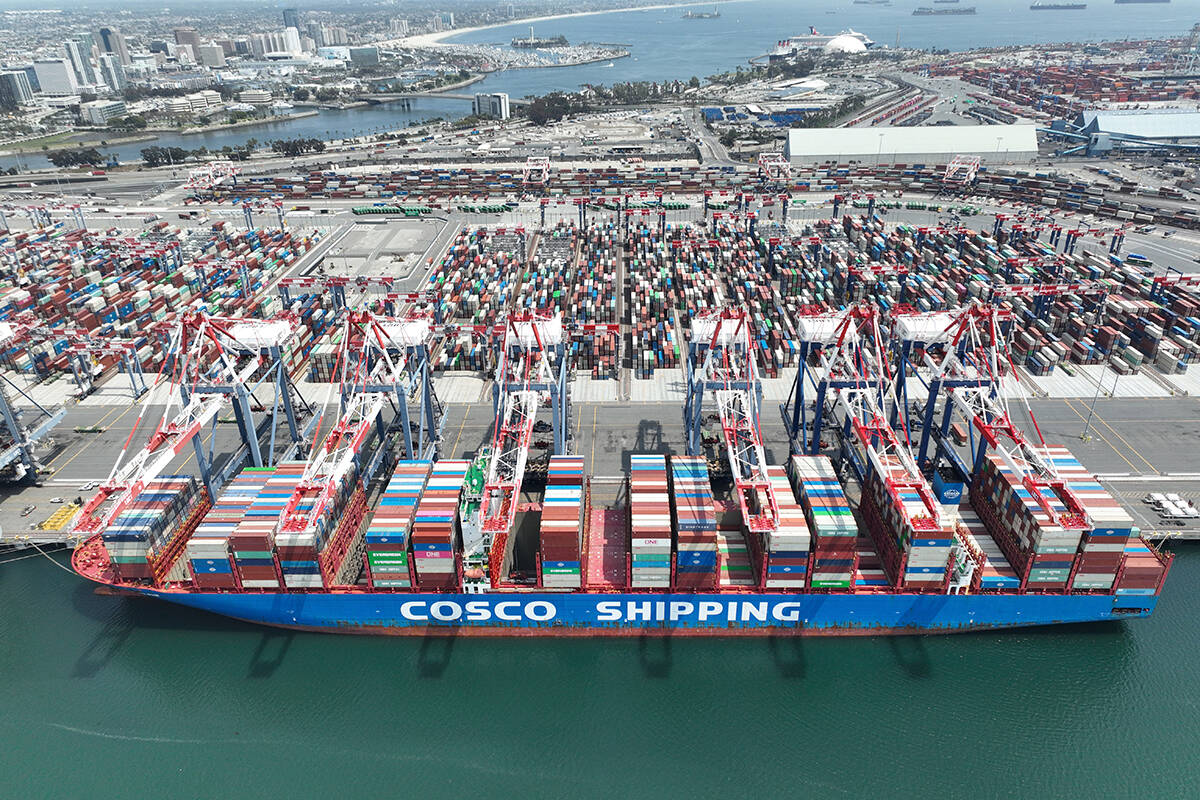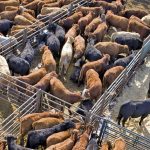Canadian organic growers could have plenty to give thanks for this October.
That’s when members of the European Union’s agriculture council are scheduled to decide whether to extend a Dec. 31, 2005, equivalency deadline for another year.
If, as expected, the proposal is approved, it would give Canada’s 3,000 organic farmers some breathing room to get their house in order.
“It looks like the pressure is a little bit off our backs,” said Laura Telford, executive director of Canadian Organic Growers, a national organization representing farmers and consumers.
Read Also

U.S. softens fees on Chinese shipping
The U.S. starts charging new fees on Chinese ships on Oct. 14. What are the ramifications for their ag exports?
By the end of this year exporting nations were to have achieved third country status, a designation indicating their organic systems were equivalent to those used by the EU.
But Canada has a long way to go before trade negotiators can achieve that coveted status.
The organic community has yet to agree on a new national standard, which has been under revision since January 2002. The fourth draft of the three-part document is scheduled for another vote later this fall.
The development of a federal law to govern that standard is also a work in progress, so the organic sector is in no shape to meet the original deadline.
A one-year extension would be a welcome reprieve and would enable trade to continue flowing to the world’s largest organic marketplace in 2006.
The EU agriculture council is expected to make a decision on the extension during a meeting scheduled for Oct. 23-24.
“There is a good chance it will actually get through,” said International Trade Canada spokesperson Andre Lemay.
Telford is adamant that events in Europe should not sap the momentum building in Canada as the organic sector scrambles to get an internationally acceptable regulation in place.
“I don’t want anything to let up pressure on Canada to develop this law,” said Telford.
“It could end up slowing us down if everybody just breathed a sigh of relief and stopped working on it, but I don’t think that’s going to happen.”
In April, federal agriculture minister Andy Mitchell endorsed a plan to establish a national regulation for organic agriculture and the department formed a task force to accomplish that goal.
The person heading that task force has assured Telford there will be no letting up, regardless of what the EU decides. Joe Southall has committed to having a national regulation in place by spring 2006 at the latest.
Organic Trade Association spokesperson Stephanie Wells said the proposed delay has more to do with the EU getting its import protocol in shape rather than providing more time for exporters.
“They’ll get their ducks in a row and give us a little bit more time to get our ducks in a row and I think it will be all fine.”
She said Canada’s organic community has no intention of easing up on the progress it has been making on the regulatory front, but added that an extension would still be welcome.
“It would just be so much nicer if we knew we were good to go for another year and did not have to divert any effort into negotiating a grace period.”
Telford said the EU isn’t the only region antsy about Canada’s incomplete standard and unfinished regulation. Nature’s Path, one of the country’s largest organic exporters, has been shut out of Japan and South Korea due to a lack of confidence in Canada’s existing system.
A new regulation will allow Canada to begin negotiating standardization agreements with those countries as well as Europe.
Perhaps more importantly, the completion of this long-running project would enable the industry to move from a domestic marketing system with 27 organic labels to one with an identifiable national brand.
“People are really confused and I think it has kind of slowed the development of our markets,” said Telford.
She hopes the launch of a national branding campaign will have the same impact as it did in the United States, where the National Organic Program led to a “big bump” in organic consumption and production.
And once the standard and regulation are in place, the industry can devote its energy to other pressing projects.
“I’m looking forward to the day when we can work on other issues that I actually think are bigger,” said Telford.
Topping the to-do list will be building the organic production base. With the exception of Saskatchewan, not many new farmers are seeking certification.
But until the regulation issue is resolved, all the other issues will continue to simmer on the back burner.

















